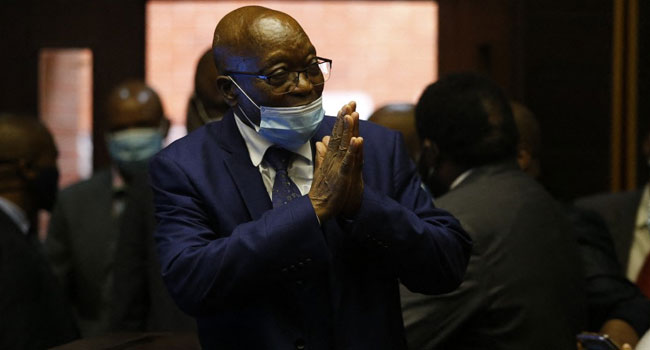Parole is the release of a prisoner to supervision in the community after he/she has completed a part of his/her sentence.
The former president was sentenced to 15 months jail term in June after he was found guilty of contempt of court.
The National Department of Correctional Services (DCS) on Sunday said Zuma’s eligibility for parole was compelled by a medical report it received.
“Section 75(7)(a) of the Correctional Services Act 111 of 1998, affords the National Commissioner a responsibility to place under correctional supervision or day parole, or grant parole or medical parole to a sentenced offender serving a sentence of incarceration for 24 months or less,” the statement reads.
“The National Commissioner is also in terms of Section 52, empowered to prescribe conditions of parole.
“Medical parole’s eligibility for Mr Zuma is impelled by a medical report received by the Department of Correctional Services. Apart from being terminally ill and physically incapacitated, inmates suffering from an illness that severely limits their daily activity or self-care can also be considered for medical parole.
“The risk of re-offending of released inmates must also be low and there must be appropriate arrangements for the inmate’s supervision, care and treatment within the community to which the inmate is to be released to.
“Medical parole placement for Mr Zuma means that he will complete the remainder of the sentence in the system of community corrections, whereby he must comply with specific set of conditions and will be subjected to supervision until his sentence expires.
“Medical Parole can only be revoked if an offender does not comply with the placement conditions.”
The DCS said the placement on medical parole is an option available to all sentenced offenders provided they meet all the requirements.
Zuma was South Africa’s president from 2009 to 2018.








